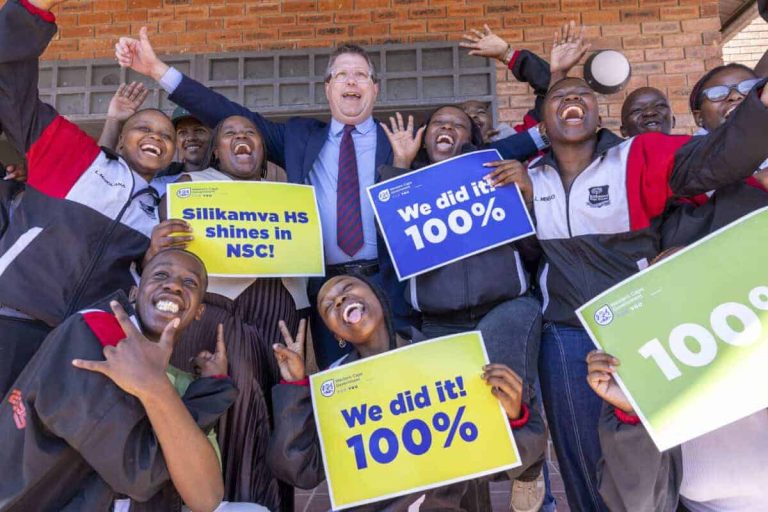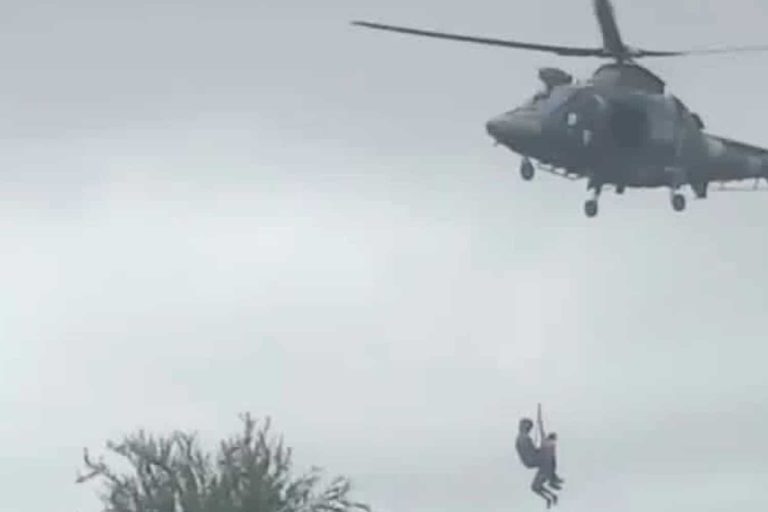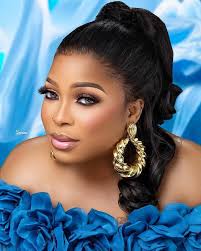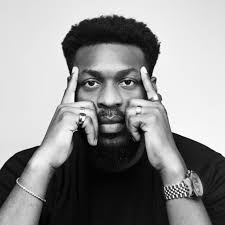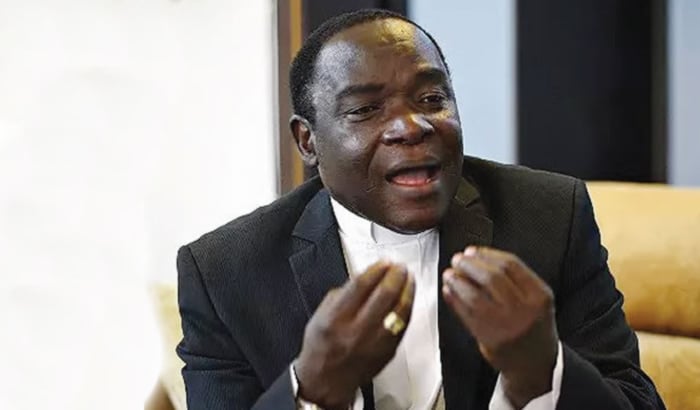
Bishop of the Catholic Diocese of Sokoto, Nigeria, Matthew Kukah, has argued against designating Nigeria as a ‘Country of Concern’ by the United States government, stressing that it will inevitably make the situation worse and make dialogue even more difficult.
In his comments at the launch of the Church in Need (ACIN) 2025 World Report on Religious Freedom in the World, Kukah stated that although there are obvious killings of Christians in Nigeria, the blood being shed in the country has no boundaries.
He blamed a weak Nigerian state, made worse under the erstwhile government of Muhammadu Buhari, who intentionally sidelined Christians, arguing that while the terrorists deployed their guns under his administration, the ex-President used his pen to achieve the same aim.
For over 15 years now, he argued that these murderous gangs of Islamicists and jihadist groups found their way into the country, wreaking havoc, destroying lives and properties, ravaging farmlands and leaving huge parts of the country empty of human existence.
Along with this, Kukah stated that there is a culture of uncontrolled banditry, thousands of communities have been destroyed, with thousands of lives lost, as the country has witnessed an unacceptable surge in internal displacement in most parts of the north especially around the middle belt states.
Tracing the origin of the violence, he stated that while Christians were the sole targets initially, the terrorists are now going after Muslims who do not believe in their brand of Islam.
“Today, the floods of blood in Nigeria have no boundaries. This is why the debate over what is happening to us has become so confusing within and outside Nigeria. Although we cannot find the right words, the simple truth is that Nigerians are dying for a living.
“The confusion over the appropriate language is understandable. The greatest area of concern is how much this tragic turn of events has disrupted years of Nigeria being a colourful tapestry of wonderful human relationships marked by great friendships among our people, across faiths and ethnicities.
“For example, I live in Sokoto, right in the womb of Islam. If we were dealing with outright persecution of Christians on grounds of identity, both myself and my small flock would not exist. For example, on September 8th, 2011, the ceremony of my ordination and installation as the Bishop of Sokoto was marked by this exemplary show of collaboration between the Diocese, the state government and the Sultan who personally enthusiastically provided accommodation for my guests during the occasion.
“ I received the gift of a new Prado Jeep from a Muslim friend of mine who said to me, Bishop; This is my gift to you for your pastoral work in your vast Diocese! On the 30th of September this year, the Sultan himself was physically in the premises of our Secretariat where we commissioned an ICT facility with almost 300 computers for youth and children. This is not to say that there are no problems, but our daily lives should be defined by a better narrative.
“We are therefore not dealing with cases of people who are going around wielding machetes and looking for me to kill because I am a Christian. I travel in my official regalia as Bishop in and out of Sokoto. We carry out our religious services with no molestations. However, what is important is not to create the impression that we have no problems.
“We do have serious problems but these have escalated because the federal and state governments have, over the years, allowed these problems to fester. The inability of the federal government and its security agencies to end these killings has created the condition for the genocide that has taken over many communities today,” Kukah stated.
According to him, by whatever names it is called, the fact is that Nigerians are dying unacceptable deaths across the country, and in many cases, are targeted because of their beliefs, but also because of their ethnicity.
“We are in the cusp of a weak state with a clear lack of capacity to arrest the descent into anarchy. Nigerians feel vulnerable and unprotected irrespective of their faiths, ethnicity or social classes. A significant part of our social life has literally collapsed as many citizens now fear large gatherings for social events or prayer. It is important to restate that things were never really always like this.
“The last 8 years of the Buhari administration marked the worst phase in the history of interfaith relations in Nigeria, especially relating to violence against Christians and their exclusion from power. That administration gave oxygen to jihadists by virtue of its policies which overtly favoured Islam and northern Nigeria.
“The President himself was a Muslim, ensured that the Senate President, the Speaker, the Deputy Speaker, the entire leadership of security was entrusted to the hands of only Muslims, almost all from the north. This was a departure from the sensibilities that had characterised power sharing in Nigeria.
“I argued then that in reality, the difference between President Buhari and the Jihadists was that he was using a pen while the jihadists were using weapons of violence against Christians. I also stated that under Buhari, to gain power, it was more important to be a northern Muslim than to be a citizen of Nigeria,” Kukah wrote.
According to him, today, sadly, Nigeria is still bleeding, but said that there is a window of opportunity that can be used to restore harmony among the people, acknowledging that President Bola Tinubu is a Muslim and his wife is a Pastor in a Pentecostal Church.
According to him, while the current President and the Vice President are Muslims, Christians have not felt alienated, as the Chief of General Staff of the Nigerian Army, the Director of State Security Services among others are Christians.
“The President just appointed a Christian as the leader of the ruling Party. He also has appointed a Christian as the Chairman of the Independent National Electoral Commission (INEC). These are confidence building measures aimed at inspiring confidence in the citizens about having a sense of belonging”, he added.
While violence is still going on, he however said that the Global Terrorism Index Report for 2025 stated that terrorist attacks in Nigeria declined by 37 per cent in 2024.
“This Report is not meant to make any one side happy or sad. It is a wake-up call for Nigeria. The report offers Nigeria an opportunity to stand in the mirror and decide how it wants to create a country of common citizenship,” Kukah said.
For years, he argued that the agents of state stood by as individuals took the law into their hands, destroying churches and killing Christians over the last 40 years, killing innocent citizens of both faiths on grounds of blasphemy laws with the Hisbah groups seeking to enforce Islamic laws by the backdoor, all with no repercussion.
“The dubious decision by 12 northern states to adopt Sharia law in a Democracy in 2000, opened the door to Islamicists who saw this as a sign that Islam was on the ascendancy. Things must change. The President should go to court to have the adoption of Sharia law by the 12 northern states declared unconstitutional as the only way to arrest the tendency to mob justice which continues to claim innocent lives of citizens such as Deborah Samuel (Sokoto), Bridget Agbahime (Kano). The secular state anticipated by the Constitution must be enforced.
“In the experiences of Christian minorities in northern Nigeria, what constitutes persecution is not necessarily just violence. It is also the perceived denial of their rights to access to places of worship in public institutions, refusal of state authorities to allocate lands for the building of churches, not reconstructing destroyed churches when fanatics raze them down, denial of employment opportunities and promotion in public institutions, lack of access to religious education for Christian children in public schools etc. The right to what constitutes persecution belongs to the victim. It is left for the state to gauge these claims against the Constitution”, he emphasised.
Besides, he argued that the Barack Obama and Joe Biden administrations were complicit in the way they handled the fight against Boko Haram under the Presidency of Goodluck Jonathan.
“The country was already making progress. The decision to block Nigeria’s access to the required weapons to end this violence by the Obama administration and their drive to impose President Buhari on Nigeria pushed back this fight.
“I therefore appeal to President Donald Trump who is already working hard to show that a peaceful world is possible with his historic achievement in the Middle East to lift the ban and allow Nigeria access to the military tools it requires to free our country from the stranglehold of these evil men.
“I believe this will set us on a course to end the violence that extremist groups and merchants of death have inflicted on us,” he said.
Emmanuel Addeh
